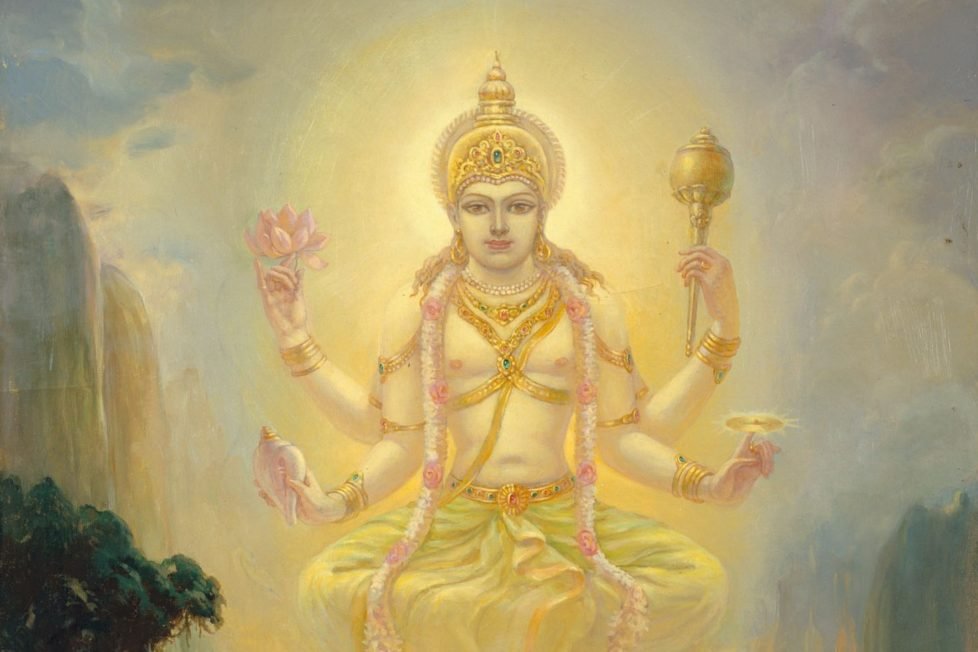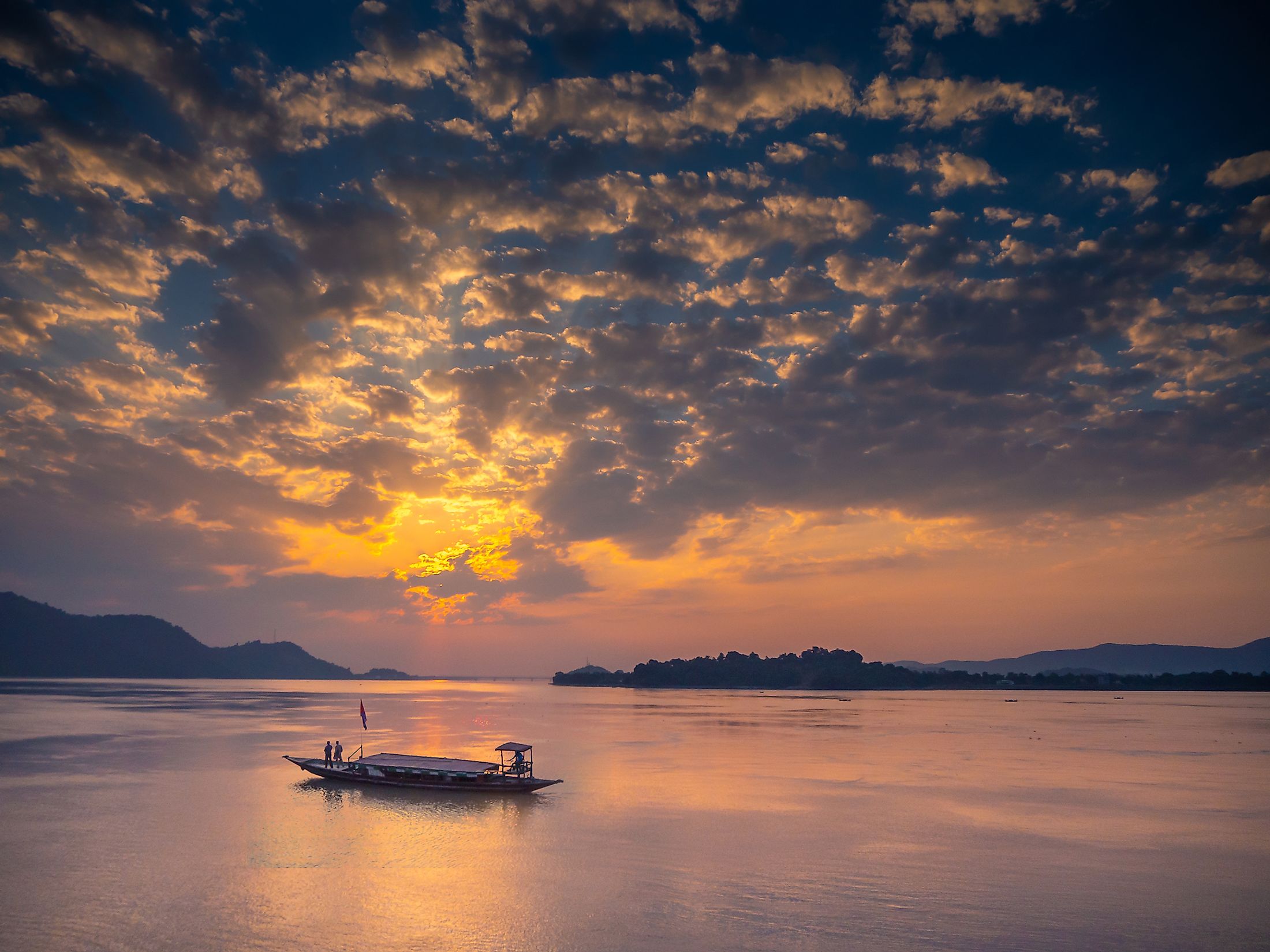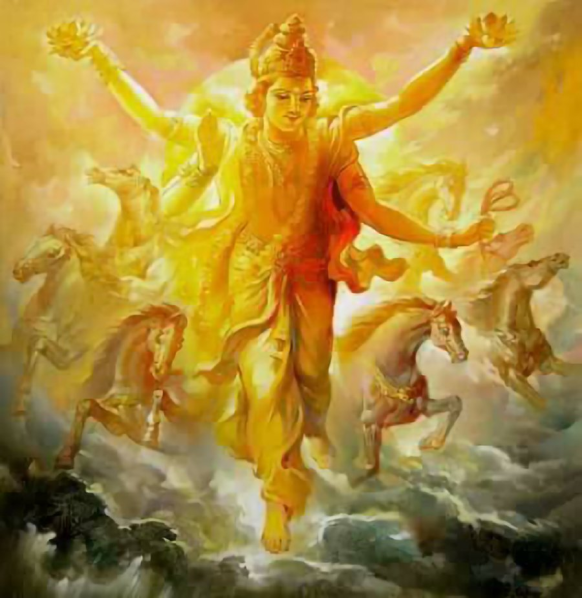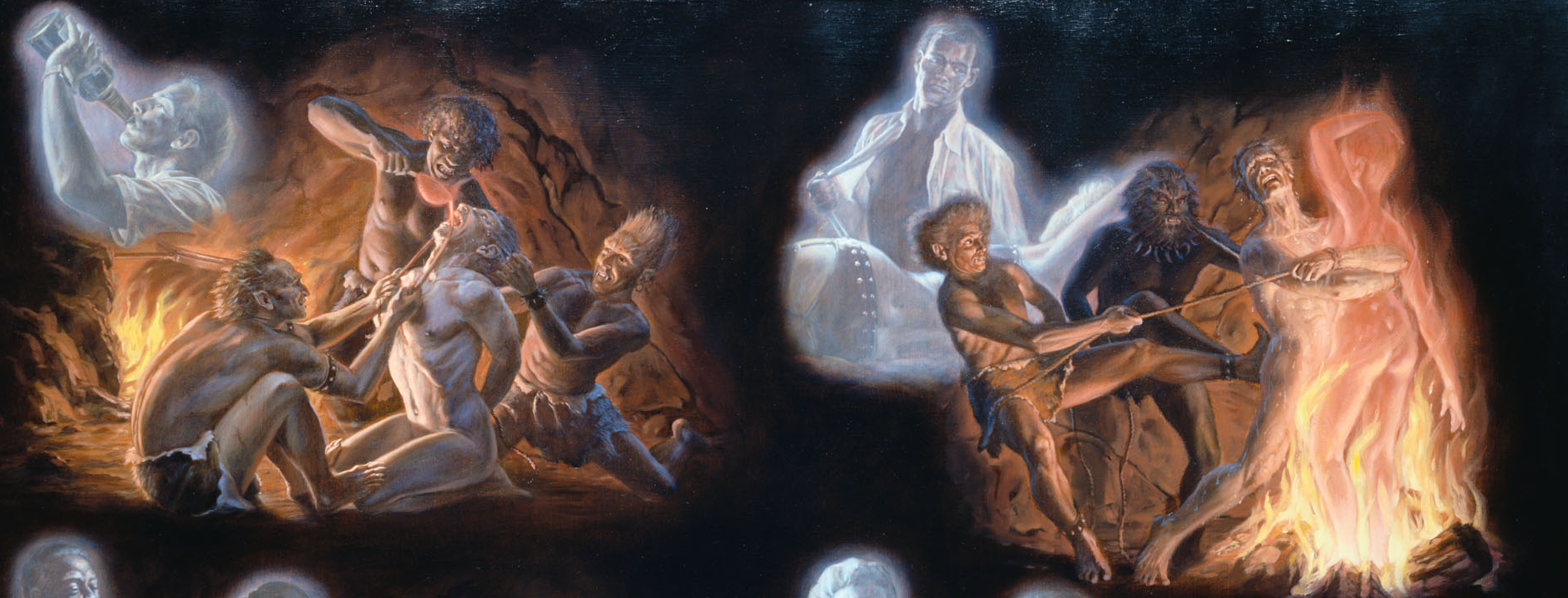Selected Verses From Srimad Bhagavatam Canto 5


Even if one is liberated, he nevertheless accepts the body he has received according to his past karma. Without misconceptions, however, he regards his enjoyment and suffering due to that karma the way an awakened person regards a dream he had while sleeping. He thus remains steadfast and never works to achieve another material body under the influence of the three modes of material nature.
– Srimad Bhagavatam 5.1.16
While so excellently ruling the universe, King Priyavrata once became dissatisfied with the circumambulation of the most powerful Sun God. Encircling the Galactic Sumeru Hill on his Chariot, the Sun illuminates all the surrounding Planetary Systems!
However, when the Sun is on the northern side of the Galactic Hill, the south receives less light, and when the sun is in the south, the north receives less. King Priyavrata disliked this situation and therefore decided to make daylight in the part of the universe where there was night.
He followed the orbit of the Sun God on a brilliant chariot and thus fulfilled his desire. He could perform such wonderful activities because of the power he had achieved by worshiping the Supreme Personality of Godhead (Lord Vishnu).
– Srimad Bhagavatam 5.1.30
When Priyavrata drove his chariot behind the Sun, the rims of his chariot wheels created impressions that later became Seven Oceans, dividing Bhū-maṇḍala (Earth) into Seven Islands.
The names of the islands are Jambū, Plakṣa, Śālmali, Kuśa, Krauñca, Śāka and Puṣkara. Each island is twice as large as the one preceding it, and each is surrounded by a liquid substance, beyond which is the next island.
The seven oceans respectively contain salt water, sugarcane juice, liquor, clarified butter, milk, emulsified yogurt, and sweet drinking water. All the islands are completely surrounded by these oceans, and each ocean is equal in breadth to the island it surrounds. Mahārāja Priyavrata, the husband of Queen Barhiṣmatī, gave sovereignty over these islands to his respective sons, namely Āgnīdhra, Idhmajihva, Yajñabāhu, Hiraṇyaretā, Ghṛtapṛṣṭha, Medhātithi and Vītihotra. Thus they all became Kings of the Islands by the order of their father.
– Srimad Bhagavatam 5.1.31 – 33
Devotees interested in hearing and chanting [śravaṇaṁ kīrtanam] regularly discuss the pure characteristics of Bharata Mahārāja and praise his activities. If one submissively hears and chants about the all-auspicious Mahārāja Bharata, one’s life span and material opulences certainly increase.
One can become very famous and easily attain promotion to the heavenly planets, or attain liberation by merging into the existence of the Lord. Whatever one desires can be attained simply by hearing, chanting and glorifying the activities of Mahārāja Bharata.
In this way, one can fulfill all his material and spiritual desires. One does not have to ask anyone else for these things, for simply by studying the life of Mahārāja Bharata, one can attain all desirable things.
– Srimad Bhagavatam 5.14.46
O Lord, You do not desire the creation, maintenance or annihilation of this material world, but You perform these activities for the conditioned souls by Your creative energy. Exactly as a piece of iron moves under the influence of a lodestone, inert matter moves only when You glance over the total matter energy!
– Srimad Bhagavatam 5.18.38
Materialists are generally very attached to their present bodily comforts and to the bodily comforts they expect in the future. Therefore they are always absorbed in thoughts of their wives, children and wealth and are afraid of giving up their Gross Bodies, which are full of stool and urine!
But if a person advanced in Spiritual Knowledge, however, is also afraid of giving up his body, what is the use of his having labored to study the Vedic Scriptures? It was simply a waste of time.
– Srimad Bhagavatam 5.19.14
Two of the rivers — the Brahmaputra and the Śoṇa — are called nadas, or main rivers. These are other great rivers that are very prominent:
Candravasā, Tāmraparnī, Avatodā, Kṛtamālā, Vaihāyasī, Kāverī, Venī,
Payasvinī, Śarkarāvartā, Tuṅgabhadrā, Kṛishaāvenyā, Bhīmarathī, Godāvarī,
Nirvindhyā, Payoshnī, Tāpī, Revā, Surasā, Narmadā, Charmaṇvatī, Mahānadī, Vedasmriti, Ṛṣikulyā, Trisāmā, Kauśikī, Mandākinī, Yamunā, Sarasvatī, Drishadvatī, Gomatī, Sarayū, Rodhasvatī, Saptavatī, Sushomā, Śhatadrū, Chandrabhāgā, Marudvridhā, Vitastā, Asiknī, Vishvā
The inhabitants of Bhārata-varṣa are purified because they always remember these rivers. Sometimes they chant the names of these rivers as mantras, and sometimes they go directly to the rivers to touch them and bathe in them. Thus the inhabitants of Bhārata-varṣa become purified.
– Srimad Bhagavatam 5.19.17 – 18

The Sun God (Surya) is also known as Vairāja, the total material body for all living entities, and because he entered this dull egg of the universe at the time of Creation, he is also called Mārtaṇḍa. He is also known as Hiraṇyagarbha because he received his material body from Hiraṇyagarbha (Lord Brahma).
– Srimad Bhagavatam 5.20.44
Until the Sun travels to the south, the days grow longer, and until it travels to the north the nights grow longer. – Srimad Bhagavatam 5.21.6
The Sun God, who is Nārāyaṇa or Viṣṇu himself, the soul of all the worlds, is situated in Outer Space between the upper and lower portions of the universe. Passing through twelve months on the Wheel of Time, the Sun comes in touch with twelve different signs of the zodiac and assumes twelve different names according to those signs. The aggregate of those twelve months is called a saṁvatsara, or an entire year.
According to lunar calculations, two fortnights — one of the waxing moon and the other of the waning — form one month. That same period is one day and night for the Pitr-loka (Ancestral Realm). According to stellar calculations, a month equals two and one quarter constellations. When the sun travels for two months, a season passes, and therefore the seasonal changes are considered parts of the body of the year.
– Srimad Bhagavatam 5.22.5

Krishna Moon = Night for Demigods, Day for Pitas
Shukla Moon = Day for Demigods, Night for Pitas
According to Srimad Bhagavatam 5.22.9
Mantra of Shishumara or Milky Way :- nirikshamāna upatishtheta namo jyotir-lokāya kālāyanāyānimishāṁ pataye mahā-purushāyābhidhīmahīti
Since there is no sunshine in those Hellish Realms, time is not divided into days and nights, and consequently fear produced by time does not exist. Many great serpents reside there with gems on their hoods, and the effulgence of these gems dissipates the darkness in all directions.
– Srimad Bhagavatam 5.24.11 – 12
If one who is embarrassed by hunger or who falls down or stumbles chants the holy name of the Lord even once, willingly or unwillingly, he is immediately freed from the reactions of his past deeds. Karmis (Actors) entangled in material activities face many difficulties in the practice of mystic yoga and other endeavors to achieve that same freedom.
– Srimad Bhagavatam 5.24.20
If a person deviates from the path of the Vedas in the absence of an emergency, the servants of Yamarāja put him into the Hell called Asi-patravana, where they beat the atheist wanderer with whips. When he runs hither and thither, fleeing from the extreme pain, on all sides he runs into palm trees with leaves like sharpened swords. Thus injured all over his body and fainting at every step, he cries out, “Oh, what shall I do now! How shall I be saved!” — This is how one suffers when he deviates from the accepted Vedic Principles of Religion.
– Srimad Bhagavatam 5.26.15

DISCLAIMER: The author is solely responsible for the views expressed in this article. The author carries the responsibility for citing and/or licensing of images utilized within the text.
